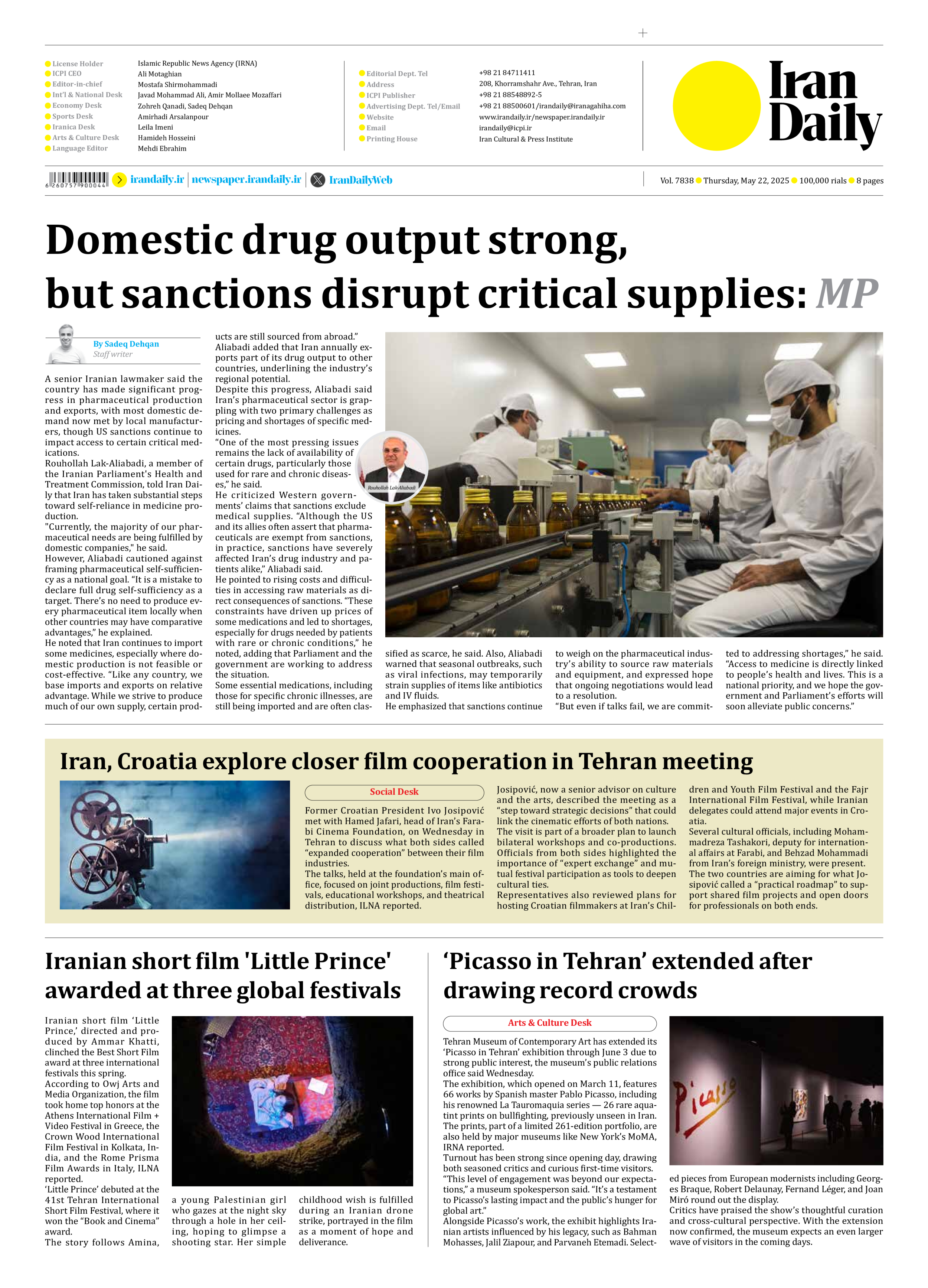
Domestic drug output strong, but sanctions disrupt critical supplies: MP
By Sadeq Dehqan
Staff writer
A senior Iranian lawmaker said the country has made significant progress in pharmaceutical production and exports, with most domestic demand now met by local manufacturers, though US sanctions continue to impact access to certain critical medications.
Rouhollah Lak-Aliabadi, a member of the Iranian Parliament's Health and Treatment Commission, told Iran Daily that Iran has taken substantial steps toward self-reliance in medicine production.
"Currently, the majority of our pharmaceutical needs are being fulfilled by domestic companies," he said.
However, Aliabadi cautioned against framing pharmaceutical self-sufficiency as a national goal. “It is a mistake to declare full drug self-sufficiency as a target. There’s no need to produce every pharmaceutical item locally when other countries may have comparative advantages,” he explained.
He noted that Iran continues to import some medicines, especially where domestic production is not feasible or cost-effective. “Like any country, we base imports and exports on relative advantage. While we strive to produce much of our own supply, certain products are still sourced from abroad.”
Aliabadi added that Iran annually exports part of its drug output to other countries, underlining the industry’s regional potential.
Despite this progress, Aliabadi said Iran’s pharmaceutical sector is grappling with two primary challenges as pricing and shortages of specific medicines.
“One of the most pressing issues remains the lack of availability of certain drugs, particularly those used for rare and chronic diseases,” he said.
He criticized Western governments’ claims that sanctions exclude medical supplies. “Although the US and its allies often assert that pharmaceuticals are exempt from sanctions, in practice, sanctions have severely affected Iran’s drug industry and patients alike,” Aliabadi said.
He pointed to rising costs and difficulties in accessing raw materials as direct consequences of sanctions. “These constraints have driven up prices of some medications and led to shortages, especially for drugs needed by patients with rare or chronic conditions,” he noted, adding that Parliament and the government are working to address the situation.
Some essential medications, including those for specific chronic illnesses, are still being imported and are often classified as scarce, he said. Also, Aliabadi warned that seasonal outbreaks, such as viral infections, may temporarily strain supplies of items like antibiotics and IV fluids.
He emphasized that sanctions continue to weigh on the pharmaceutical industry’s ability to source raw materials and equipment, and expressed hope that ongoing negotiations would lead to a resolution.
“But even if talks fail, we are committed to addressing shortages,” he said. “Access to medicine is directly linked to people’s health and lives. This is a national priority, and we hope the government and Parliament’s efforts will soon alleviate public concerns.”







